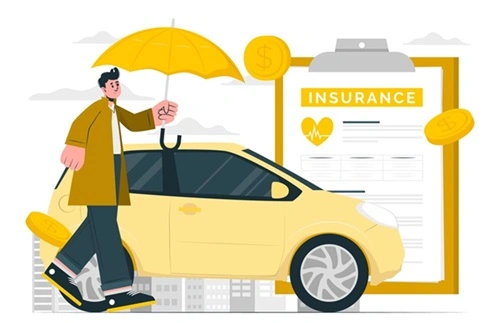For many business owners, vehicles are more than just a mode of transport- they’re an integral part of daily operations. Whether it’s transporting goods, ferrying passengers, or managing on-ground services, commercial vehicles play a crucial role in keeping the business running.
In such a setup, protecting these valuable assets becomes a smart and necessary decision. That’s where commercial vehicle insurance comes in. This article explores why it’s an essential investment for business owners and when it becomes a legal or practical requirement.

What is Commercial Vehicle Insurance?
Commercial vehicle insurance is a specialised policy designed to protect vehicles used for business purposes. It covers a wide range of vehicles, such as trucks, vans, taxis, and buses, against risks like accidents, theft, natural disasters, fire, and third-party liabilities.
Unlike private vehicle insurance, this policy is tailored to meet the unique risks and higher usage patterns associated with commercial operations. In India, having at least a third-party commercial vehicle insurance is mandatory under the Motor Vehicles Act, 1988.
Types of Commercial Vehicles That Need Insurance
Commercial vehicle insurance is designed to cover a wide variety of vehicles used for business purposes. These include:
- Passenger-Carrying Vehicles: Vehicles that transport people, such as auto-rickshaws, e-rickshaws, taxis, school vans, and both private and public buses, fall under this category.
- Heavy Goods Vehicles: Trucks, large tempos, and trailers used for transporting heavy goods across long distances are classified as heavy commercial vehicles.
- Light Commercial Vehicles: This includes smaller goods carriers like pickups, mini-trucks, and minivans. Tata ACE insurance is a popular example of this category, especially among small business owners and last-mile delivery services.
- Commercial Two-Wheelers: Two-wheelers, such as scooters, motorcycles, and mopeds, used for delivery or transportation of passengers for commercial activities are classified under this category.
- Miscellaneous and Special Vehicles: Vehicles used for specific sectors like mining, agriculture, or construction, including harvesters, JCBs, tractors, and excavators, are covered in this category.
Why Do Business Owners Need Commercial Vehicle Insurance?
Commercial vehicle insurance is more than just a legal requirement- it’s a critical tool for safeguarding a business’s assets, operations, and people. Here’s why every business owner using vehicles should invest in the right coverage:
- Financial Protection Against Vehicle Damage: Accidents, natural disasters, vandalism, or theft can cause significant damage to your vehicles. Commercial vehicle insurance covers repair or replacement costs, saving businesses from financial strain.
- Third-Party Liability Coverage: If your vehicle causes damage to another person’s property or results in injury or death, the policy provides compensation as per legal obligations. This protects your business from potentially expensive lawsuits and claims.
- Medical Payments for Injuries: In case of an accident, commercial vehicle insurance may cover medical expenses for the driver and any passengers. This ensures treatment without financial burden on businesses where employees operate the vehicles.
- Coverage for Loss or Damage of Goods: If your business involves transporting goods, insurance can cover the cost of items that are lost, stolen, or damaged during transit due to accidents, fire, or theft, preventing financial losses.
- Legal Compliance: In India, it’s mandatory under the Motor Vehicles Act to have at least third-party insurance for all commercial vehicles. Failing to comply can result in fines, vehicle seizure, or legal action, impacting your business operations.
- Protection of Business Reputation: Accidents involving uninsured vehicles can damage your company’s reputation. Having proper insurance coverage reflects professionalism and responsibility, building trust with clients and stakeholders.
- Employee Safety and Morale: Drivers and other staff who operate company vehicles feel more secure knowing they’re covered by insurance. This improves job satisfaction and boosts morale, especially in high-risk roles.
- Ensures Uninterrupted Business Operations: Vehicle breakdowns or accidents can disrupt logistics, deliveries, and services. With insurance, quick claims and access to support services like replacement vehicles help keep your operations running smoothly.
- Roadside Assistance Services: Many commercial vehicle insurance policies include 24×7 roadside assistance, offering help with breakdowns, towing, fuel delivery, and minor repairs, benefiting long-distance transport businesses or remote route operations.
When Do Businesses Need Commercial Vehicle Insurance?
Not every vehicle used in a business context looks like a cargo truck or a passenger bus. Even personal cars and bikes used for business may require special insurance coverage. Here are situations when business owners should consider getting commercial vehicle insurance:
- Using Personal Vehicles for Work: If your private car or bike is used for business-related errands—like deliveries, client visits, or transporting materials—it may not be protected under a personal vehicle insurance plan.
- Managing a Fleet of Vehicles: Businesses with multiple vehicles- be it delivery vans, pickups, or passenger cabs- should invest in fleet insurance. This simplifies coverage under a single policy and protects all the vehicles operating under your business.
- Transporting Goods or Passengers: Whether you run a logistics business or a taxi service, transporting goods or passengers increases the risks involved. Commercial vehicle insurance is designed to handle claims related issues during transit.
- Carrying Tools or Equipment: If your business involves carrying valuable tools or equipment- like those used in plumbing, electrical work, or construction- having commercial insurance ensures coverage in case of damage to items in transit.
- Operating in High-Risk Industries: Some professions, such as driving taxis or working in hazardous areas, come with higher risks. Commercial insurance in these sectors often comes with tailored coverage to reflect the increased exposure to road accidents.
- Leasing or Financing a Vehicle: If you’re leasing or financing a commercial vehicle, the lender typically mandates a comprehensive insurance policy. This ensures that the asset is protected throughout the loan or lease term, reducing risk for both you and the lender.
Conclusion
For many business owners, commercial vehicles serve as the backbone of operations, delivery networks, and customer service. Any disruption, whether due to accidents, theft, or legal issues, can have a direct impact on revenue and reputation.
That’s why commercial vehicle insurance is an essential investment in the sustainability and security of your business. Whether you run a small delivery business or manage a large logistics fleet, having the right policy ensures you’re always prepared for the unexpected.

